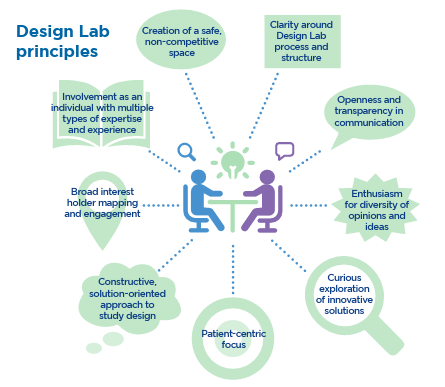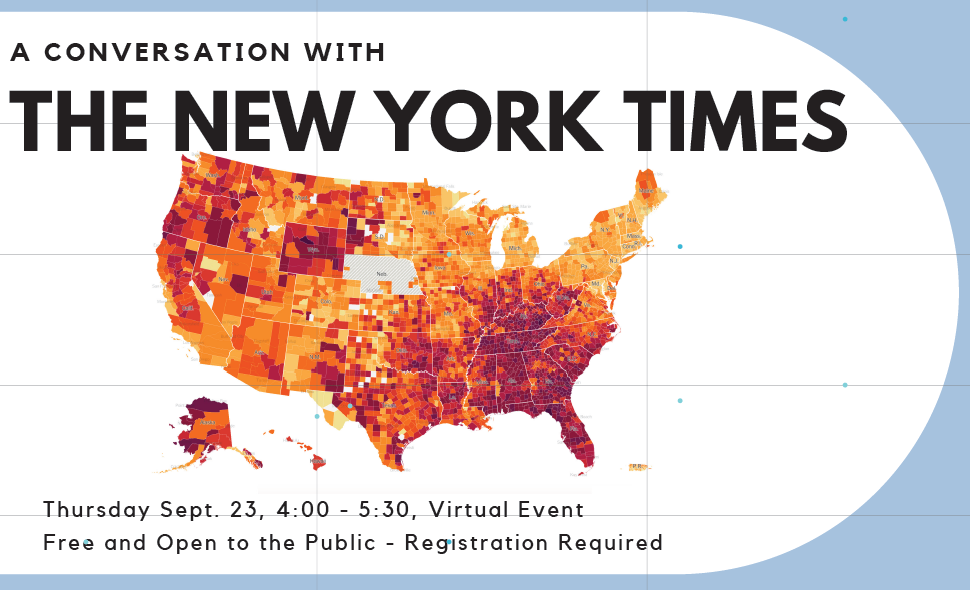POSTPONED
Given guidance and recent reports related to the novel coronavirus disease (COVID-19), this event has been postponed.
We hope to reschedule the symposium for later this year. As soon as new details are available, we will share them here.
We apologize for any inconvenience.
What does the p-value controversy mean for clinical research?
The deep controversy surrounding the use and misuse of p-values and statistical significance is evident in the decision by the American Statistical Association to issue a policy statement on the matter in 2016. The statement marked the first occasion the Association has taken a position on a specific matter of statistical practice since its founding in 1839.
This Tufts CTSI symposium, co-sponsored by the Tufts Data Intensive Studies Center (DISC), aims to inform clinician researchers and statisticians regarding the principles covered in the statement as well as the controversy over the proper use and interpretation of the p-value. Distinguished panelists will speak on use of p-values from their multiple perspectives to reflect the landscape of opinions and provide guidance for investigators and educators going forward. They include scientists, statisticians, epidemiologists, and statistical advisors to prominent journals and policy organizations, with expertise in statistics, genetics, communication, nutrition, obesity, cardiovascular disease, and drug approval.
Learning objectives:
- Understand the rationale behind the ASA statement that “No single index [i.e., p-value] should substitute for scientific reasoning.
- Discuss the role that p-values have had on reproducibility and replication and the proposed remedies.
- Apply alternative remedies for dealing with uncertainty in clinical research and education.
Panelists
John P.A. Ioannidis, MD, DSC
C.F. Rehnborg Chair in Disease Prevention and Professor at Stanford University
Author of “Why Most Published Research Findings are False,” accessed more than three million times. His recent JAMA viewpoint is subtitled “Do Not Abandon Significance.” Dr. Ioannidis has published nearly 1,000 papers and is one of the 10 most-cited scientists worldwide.
David Allison, PhD
Dean and Provost of the Indiana University School of Public Health
Author of “A Tragedy of Errors: Mistakes in Peer-reviewed Papers are Easy to Find but Hard to Fix, Report” and committee member of the National Academies of Sciences, Engineering, and Medicine report, “Reproducibility and Replicability in Science.”
David Harrington, PhD
Professor of Biostatistics, Emeritus, Harvard T.H. Chan School of Public Health
Co-Author of the 2019 New England Journal of Medicine article, “New Guidelines for Statistical Reporting in the Journal.” Dr. Harrington is also the principal investigator of the Statistical Coordinating Center for the Cancer Care Outcomes Research and Surveillance (CanCORS) Consortium and the project leader of the Biostatistics Core and Director of the Biostatistics Research Program in the Dana-Farber/Harvard Cancer Center (DF/HCC).
Allen Schirm, PhD
Recently retired from Mathematica Policy Research
Co-Author of the 2019 The American Statistician editorial, “Moving to a World Beyond ‘p<0.05’.” He and Dr. Ron Wasserstein recently discussed their recommendations on statistical inference at the United States Conference on Teaching Statistics.
Details
Tuesday, April 7
8:30-11:30AM
Jean Mayer Human Nutrition Research Center on Aging (HNRCA)
711 Washington Street, Boston, MA 02111
All are welcome to attend, especially:
- Clinician researchers and investigators leading clinical trials.
- Statisticians working with and educating clinical investigators.
Registration
Space is limited. Please register to attend.
About Tufts CTSI Events
Tufts CTSI’s Professional Education programs provide non-degree continuing education and training for clinical and translational research professionals from all Tufts CTSI partners and beyond.
Course enrollment priority is given to researchers from Tufts CTSI partner institutions. If your participation needs to be approved by your supervisor or a person responsible for your time release, you may provide their contact information when you register for the program.
This course is provided free of charge, and was supported by the National Center for Advancing Translational Sciences, National Institutes of health, Award Number UL1TR002544. The content is solely the responsibility of the authors and does not necessarily represent the official views of the NIH.




